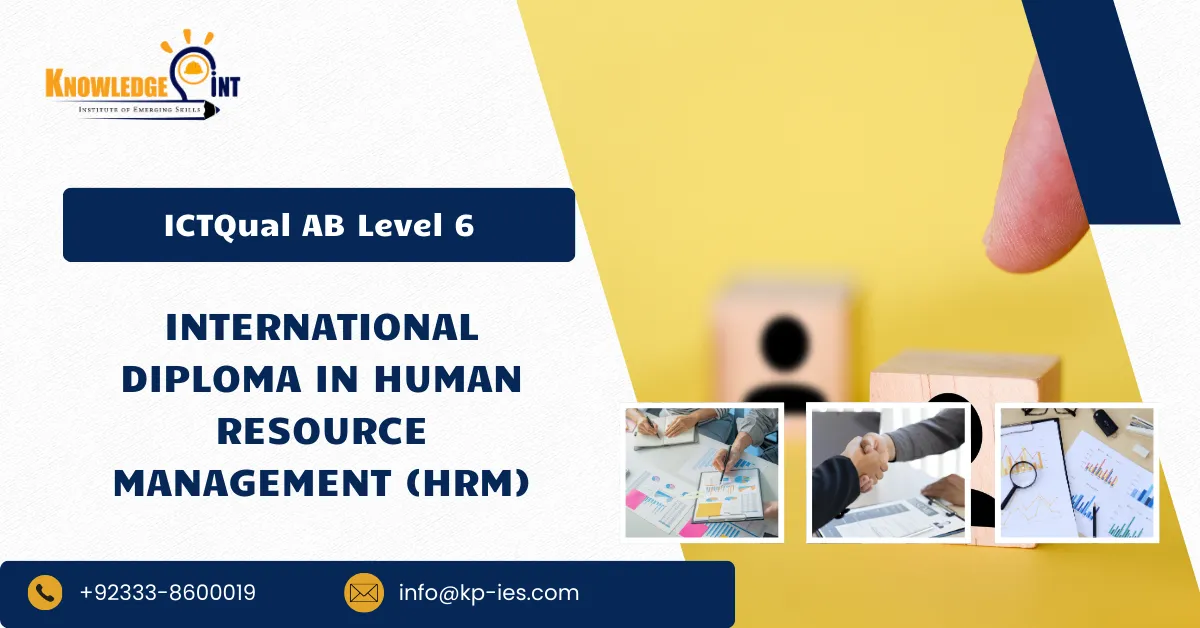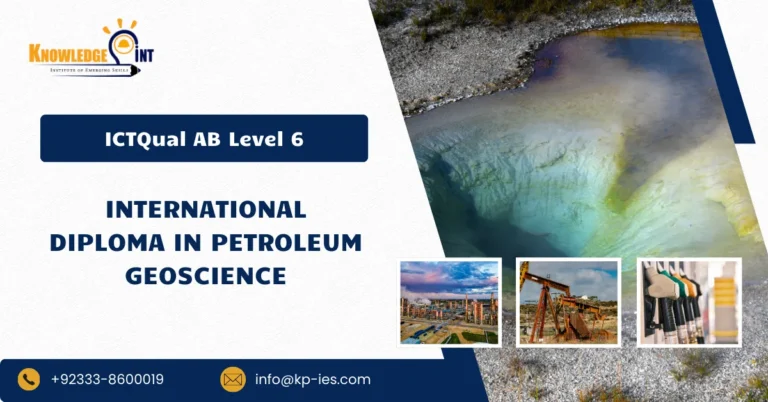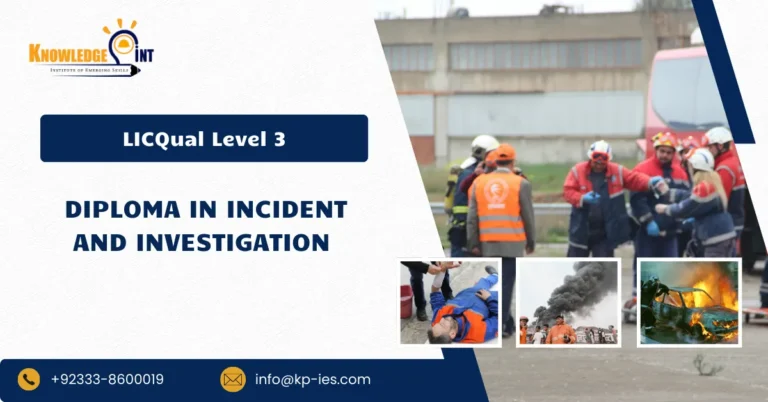The ICTQual AB Level 6 International Diploma in Human Resource Management (HRM) is a three-year, 360-credit programme designed to prepare learners for success in the fast-evolving world of human resources. It combines academic depth with practical knowledge to build the competencies required for managing people, performance, and organisational growth in a global context.
This programme covers a wide spectrum of HR functions, starting with the foundations of workforce planning, employee relations, and organisational behaviour. As learners progress, they develop advanced expertise in areas such as strategic HRM, performance management, training and development, and labour law. The curriculum is structured to balance theory with application, ensuring that learners not only understand concepts but also learn how to implement them effectively in real workplace scenarios.
Human resources is at the heart of every organisation. Skilled professionals are needed to design people-focused policies, resolve workplace challenges, and lead initiatives that foster productivity and innovation. This diploma helps learners build the ability to align HR strategies with business goals, manage diverse teams, and adapt to the changing needs of modern workplaces shaped by digital transformation and globalisation.
By completing this diploma, learners develop the ability to interpret legal frameworks, apply laws to real-world contexts, and critically assess policies and regulations. They also acquire transferable skills such as problem-solving, negotiation, leadership, and effective communication—qualities that are highly valued across legal and governance professions.
Course Overview
This qualification, the ICTQual AB Level 6 International Diploma in Human Resource Management (HRM), consists of 36 mandatory units.
Year 1 – Foundation in Human Resource Management
- Introduction to Human Resource Management
- Principles of Organisational Behaviour
- Fundamentals of Business Management
- Employment Law and Workplace Regulations
- Communication Skills for HR Professionals
- Workforce Planning and Recruitment
- Employee Relations and Workplace Culture
- Diversity, Equity, and Inclusion in HRM
- Fundamentals of Training and Development
- Introduction to Performance Management
- Research Methods in Human Resource Management
- Professional Ethics and Corporate Responsibility
Year 2 – Intermediate Human Resource Management
- Strategic Human Resource Management
- Human Capital Development and Talent Management
- Organisational Learning and Knowledge Management
- Advanced Employee Relations and Negotiation
- Compensation and Benefits Management
- Labour Law and International HR Practices
- Human Resource Information Systems (HRIS)
- Leadership and Team Development
- Conflict Resolution and Workplace Mediation
- Project Management in Human Resources
- Research and Data Analysis for HRM
- Professional Development and Reflective Practice
Year 3 – Advanced Human Resource Management
- Global Human Resource Management
- Strategic Workforce Planning and Analytics
- Advanced Performance Management Systems
- Leadership in Organisational Transformation
- Corporate Governance and HRM Compliance
- International Labour Relations and Policies
- Risk Management and Employee Wellbeing
- HRM in Multinational and Cross-Cultural Contexts
- Innovation and Change Management in HRM
- Sustainable HRM and Corporate Social Responsibility
- Advanced Research in Human Resource Management
- Capstone Project in Human Resource Management
Learning Outcomes for the ICTQual AB Level 6 International Diploma in Human Resource Management (HRM):
Year 1 – Foundation in Human Resource Management
Introduction to Human Resource Management
- Understand the purpose, scope, and functions of HRM.
- Recognise the role of HR in supporting organisational strategy.
- Develop awareness of HRM practices across industries.
Principles of Organisational Behaviour
- Analyse individual and group behaviour within organisations.
- Evaluate factors influencing motivation, teamwork, and leadership.
- Apply behavioural theories to improve workplace performance.
Fundamentals of Business Management
- Understand the core principles of business and management.
- Explore the relationship between HR and wider business functions.
- Apply management concepts in organisational contexts.
Employment Law and Workplace Regulations
- Identify key employment laws and workplace rights.
- Apply compliance requirements to HR practices.
- Understand disciplinary and grievance procedures.
Communication Skills for HR Professionals
- Develop effective verbal and written communication skills.
- Learn conflict-sensitive communication techniques.
- Use digital platforms for professional HR communication.
Workforce Planning and Recruitment
- Understand workforce planning strategies.
- Apply recruitment and selection methods effectively.
- Evaluate modern approaches to attracting and retaining talent.
Employee Relations and Workplace Culture
- Analyse the role of HR in managing workplace relations.
- Promote positive organisational culture.
- Apply strategies to resolve employee issues.
Diversity, Equity, and Inclusion in HRM
- Understand concepts of equity and diversity in the workplace.
- Develop inclusive HR strategies.
- Promote fairness and equal opportunities at work.
Fundamentals of Training and Development
- Understand the learning and development process.
- Design basic training programmes.
- Evaluate the effectiveness of training interventions.
Introduction to Performance Management
- Recognise the principles of performance evaluation.
- Apply appraisal techniques.
- Use performance management as a tool for growth.
Research Methods in Human Resource Management
- Understand qualitative and quantitative research methods.
- Develop skills in data collection and analysis.
- Apply research methods to HR challenges.
Professional Ethics and Corporate Responsibility
- Understand ethical issues in HRM.
- Apply corporate responsibility principles to HR policies.
- Promote integrity and accountability in HR practices.
Year 2 – Intermediate Human Resource Management
Strategic Human Resource Management
- Understand HR’s role in shaping business strategy.
- Analyse the link between HRM and organisational goals.
- Apply models of strategic HRM in practice.
Human Capital Development and Talent Management
- Develop strategies for attracting and retaining talent.
- Understand succession planning.
- Evaluate approaches to human capital growth.
Organisational Learning and Knowledge Management
- Understand learning organisation principles.
- Apply knowledge-sharing practices in HRM.
- Promote innovation through organisational learning.
Advanced Employee Relations and Negotiation
- Analyse complex employee relations issues.
- Apply advanced negotiation strategies.
- Resolve workplace conflicts effectively.
Compensation and Benefits Management
- Understand reward systems and compensation structures.
- Design competitive benefits packages.
- Evaluate the impact of compensation on motivation.
Labour Law and International HR Practices
- Understand international labour law frameworks.
- Compare HR practices across different countries.
- Apply legal requirements in a global context.
Human Resource Information Systems (HRIS)
- Understand the role of HRIS in modern HRM.
- Apply HR technologies for data management.
- Analyse HR data to support decision-making.
Leadership and Team Development
- Understand leadership theories in HR contexts.
- Apply skills for effective team management.
- Develop leadership strategies for workplace success.
Conflict Resolution and Workplace Mediation
- Analyse workplace conflict dynamics.
- Apply mediation techniques.
- Develop policies for conflict management.
Project Management in Human Resources
- Apply project management principles in HR initiatives.
- Plan and implement HR projects.
- Evaluate project outcomes against objectives.
Research and Data Analysis for HRM
- Use data analysis techniques in HR decision-making.
- Apply research tools for organisational improvement.
- Present HR research findings effectively.
Professional Development and Reflective Practice
- Engage in continuous professional growth.
- Apply reflective practice for self-improvement.
- Develop a professional development plan.
Year 3 – Advanced Human Resource Management
Global Human Resource Management
- Understand HR challenges in international organisations.
- Apply strategies for managing global workforces.
- Compare global HRM models and practices.
Strategic Workforce Planning and Analytics
- Use data analytics in workforce planning.
- Forecast workforce needs strategically.
- Apply evidence-based HR decision-making.
Advanced Performance Management Systems
- Evaluate advanced performance management tools.
- Apply continuous performance evaluation.
- Integrate performance management with business strategy.
Leadership in Organisational Transformation
- Understand HR’s role in organisational change.
- Apply leadership strategies for transformation.
- Manage resistance and build adaptability.
Corporate Governance and HRM Compliance
- Understand governance frameworks in HRM.
- Apply compliance requirements in HR functions.
- Promote transparency and accountability in HR policies.
International Labour Relations and Policies
- Analyse international labour standards.
- Apply labour relations strategies globally.
- Understand the impact of global policies on HRM.
Risk Management and Employee Wellbeing
- Identify HR-related risks.
- Apply strategies for workplace wellbeing.
- Integrate wellbeing into HR policies.
HRM in Multinational and Cross-Cultural Contexts
- Analyse cross-cultural HR challenges.
- Apply global HRM strategies.
- Develop skills in multicultural team management.
Innovation and Change Management in HRM
- Understand innovation in HR practices.
- Apply change management models.
- Promote adaptability in HR strategies.
Sustainable HRM and Corporate Social Responsibility
- Apply sustainability principles in HRM.
- Understand HR’s role in CSR initiatives.
- Promote green and ethical HR practices.
Advanced Research in Human Resource Management
- Conduct in-depth HR research projects.
- Apply advanced methodologies.
- Present research findings in a professional manner.
Capstone Project in Human Resource Management
- Integrate knowledge gained across the programme.
- Solve real-world HRM challenges.
- Present a comprehensive HRM project with practical recommendations.
Course Benefits of ICTQual AB Level 6 International Diploma in Human Resource Management (HRM)
- Gain a solid foundation in human resource principles, policies, and practices.
- Develop expertise in talent acquisition, workforce planning, and employee relations.
- Understand the importance of training, learning, and development in organizational growth.
- Acquire skills in performance management, compensation, and reward systems.
- Learn to handle labor laws, workplace ethics, and compliance effectively.
- Enhance leadership abilities for strategic HR decision-making and people management.
- Gain practical exposure to HR analytics, digital HR tools, and global HR trends.
- Prepare for roles in corporate HR departments, consultancy, recruitment, and organizational development.
After completing this course, learners can progress in the following ways:
- Progress to Master’s degrees in Human Resource Management, Business Administration (MBA HR), or Organizational Psychology.
- Pursue professional certifications such as SHRM (Society for Human Resource Management), CIPD (Chartered Institute of Personnel and Development), or HRCI credentials.
- Advance into roles like HR Manager, Talent Development Specialist, Training & Development Manager, or HR Business Partner.
- Work with multinational corporations, recruitment agencies, NGOs, or government organizations.
- Transition into strategic HR leadership roles such as HR Director or Chief Human Resources Officer (CHRO).
- Specialize in areas like HR analytics, global mobility, industrial relations, or diversity and inclusion.
- Contribute to policy-making, organizational change, and workforce transformation strategies.







